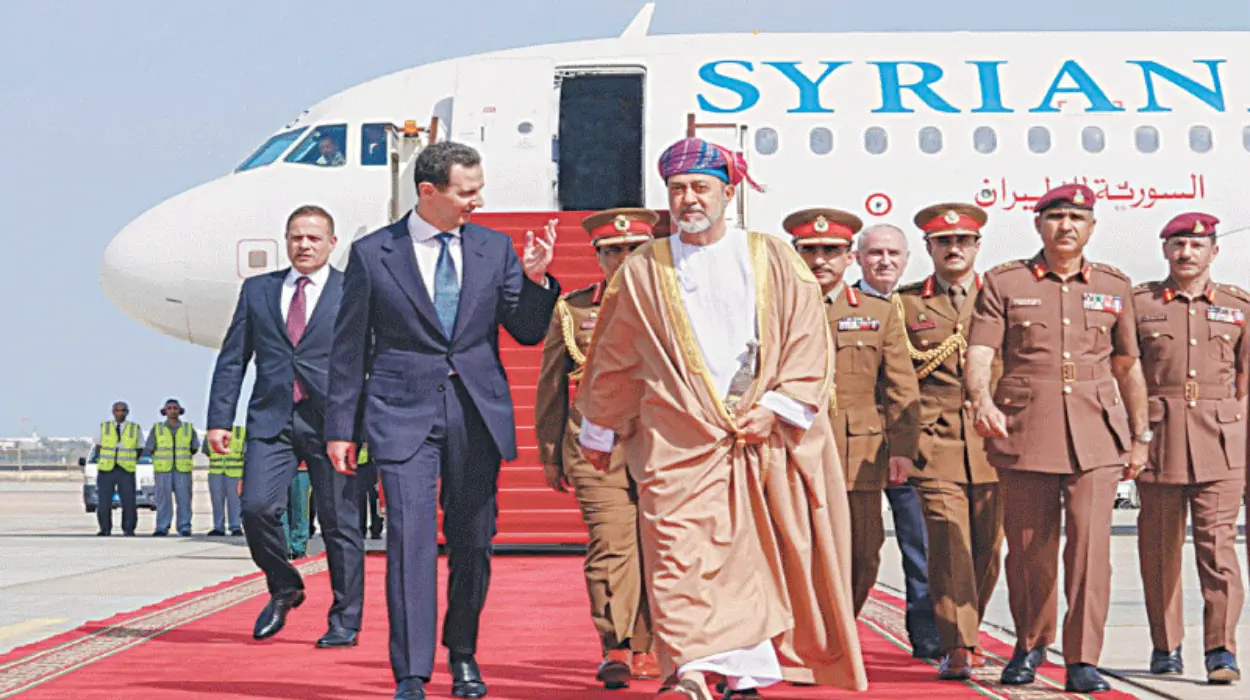Oman (Transatlantic Today) – Muscat: Syrian President Bashar al-Assad made his first official visit to Oman in over a decade on Monday, marking a significant diplomatic step amid growing regional engagement. His visit follows the devastating 7.8-magnitude earthquake that struck Turkey and Syria, claiming over 44,000 lives across both nations.
Strengthening Diplomatic Relations
Assad met with Oman’s Sultan Haitham bin Tariq at the royal palace in Muscat, where the two leaders held talks on regional issues and bilateral cooperation. The Omani foreign ministry confirmed that Sultan Haitham expressed deep condolences and sympathy for the victims of the earthquake in Syria.
Unlike other Gulf states, Oman has maintained diplomatic ties with Syria throughout the country’s civil war. The UAE and Bahrain restored relations with Syria in 2018, and Assad visited the UAE in 2022, making it his first trip to an Arab country since the conflict began in 2011.
Regional Shift Towards Syria
The earthquake has prompted increased Arab outreach to Syria, accelerating diplomatic normalization efforts. Saudi Arabia’s Foreign Minister Prince Faisal bin Farhan recently stated that a new approach to Syria is needed to address humanitarian crises.
Several Arab nations, including Saudi Arabia and the UAE, have sent aid to Syria despite previously supporting rebel groups in the early years of the war. Jordan’s Foreign Minister also visited Damascus last week, and Egyptian President Abdul Fattah al-Sisi spoke with Assad for the first time.
Oman’s Continued Engagement with Syria
Oman was the first Gulf nation to reinstate its ambassador in Damascus in 2020, defying pressure from Western allies. The visit signals growing regional support for Syria’s reintegration into the Arab League, from which it was expelled in 2011.
Assad’s visit to Oman highlights the shifting geopolitical landscape, with the earthquake catalyzing renewed Middle Eastern diplomacy. As Arab nations reconsider their stance on Syria, efforts to restore regional stability and humanitarian aid cooperation are gaining momentum.


























